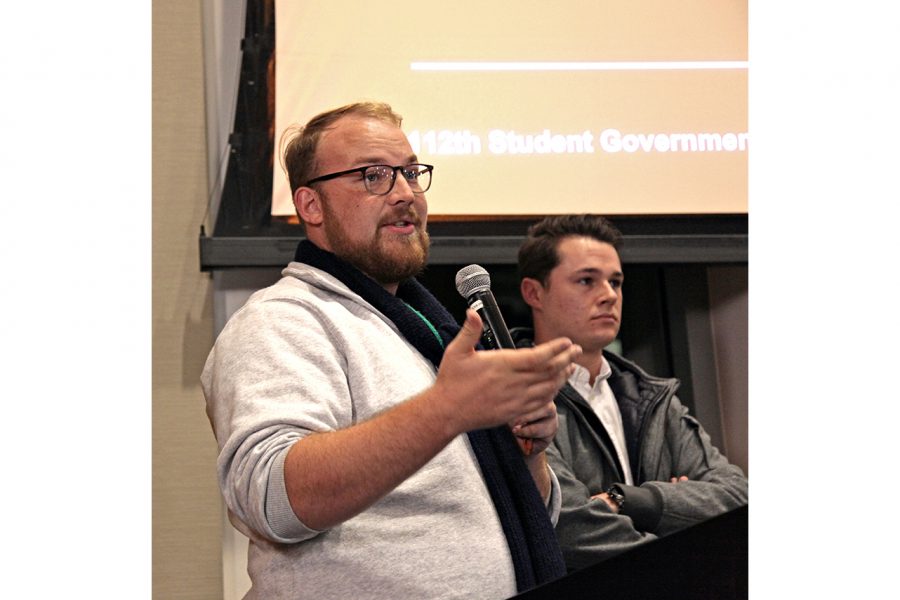When a video with a “graphic dramatization” of sexual assault was played without warning in one of Ian McEntee’s classes last fall, the humanities and sociology senior said he was stunned and uncomfortable.
At Tuesday night’s Student Government meeting, McEntee, academic affairs policy co-director, proposed Joint Resolution 1. The legislation recommends disclosures about sensitive course content on syllabi to help ensure students are aware of potentially triggering situations.
“Students have a right to know if these topics are going to be discussed because there are a lot of courses (in which) this does occur,” McEntee said. “A student’s mental health is important, and this is working to acknowledge that, while not promoting censorship of education.”
The legislation, which was originally formed by the Liberal Arts Council, recommends professors disclose class days featuring sensitive content, allowing sexual assault survivors time to mentally prepare for or opt out of those class days. Students who do so would still be responsible for the course material and not be exempted from class attendance policies, according to the legislation.
“The point of this is to put the power in the hands of the students to decide for themselves how to prepare themselves for that material, (whether) they step out, get water or look away from the screen,” said Chloe Kersh, Liberal Arts Council vice president and international relations and global studies and French junior.
While this legislation focuses on warnings for content regarding sexual assault, McEntee said the legislation sets a precedent for other students to potentially expand the disclosures into other areas of course content.
“It’s a long battle ahead, but it is something that will create withstanding change in this campus … especially following the national conversations in regards to sexual assault,” McEntee said.
Another piece of legislation, Assembly Resolution 5, proposed participation in A Day Off For Democracy — a nationwide challenge to cancel classes Nov. 6 so college students can vote.
If the legislation is approved, canceling classes would not be mandatory. Jacob Springer, state relations agency co-director, said this would encourage professors to give students a day off and motivate independent and moderate voters who might not be as politically engaged.
“A lot of students and young people continue to put it off until Election Day, and then come Election Day, if there comes a scheduling conflict, they’re not able to prioritize voting over that,” said Springer, government and political communications sophomore and resolution coauthor. “If they were to have the full day free, they could definitely make that time.”
UT won an award for most improved undergraduate student voter turnout for the 2016 election. Thirty-nine percent of undergraduates voted in the 2012 presidential election, and 53 percent voted in the 2016 election. Meanwhile, 18 percent of the UT student body voted in the 2014 midterm elections.
Early voting, which starts Oct. 22, and a new campus polling location at Perry–Castañeda Library will help increase voter turnout, Springer said, but he hopes to eventually see A Day Off For Democracy on the University’s official academic calendar.
“It’s a matter of do you value civic engagement over productivity for a couple of hours or not?” Springer said. “We could lead the way in ensuring that equal opportunity to vote is a value of this University.”
A.R. 3, introduced last week in support of a University-wide ban of state Sen. Charles Schwertner from campus, was tabled indefinitely at a governmental affairs committee meeting Monday night.
Correction: An earlier version of this article incorrectly listed the title and major of Chloe Kersh as the Liberal Arts Council president and an international relations and global studies junior. She is actually the Liberal Arts Council vice president and an international relations and global studies and French junior. It also incorrectly stated that professors would be required to disclose class days featuring sensitive content, when in fact the legislation acts a recommendation. It also incorrectly quoted Ian McEntee as saying he hopes professors eventually include warnings for other subjects such as war and violence.





















